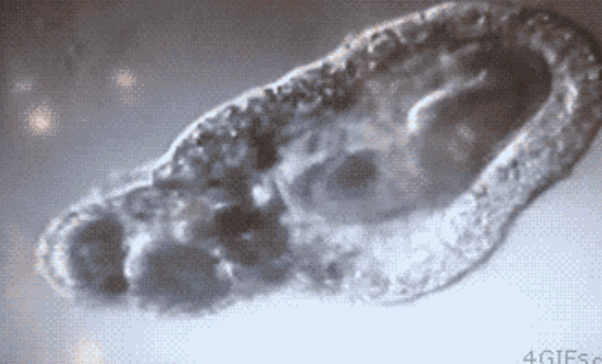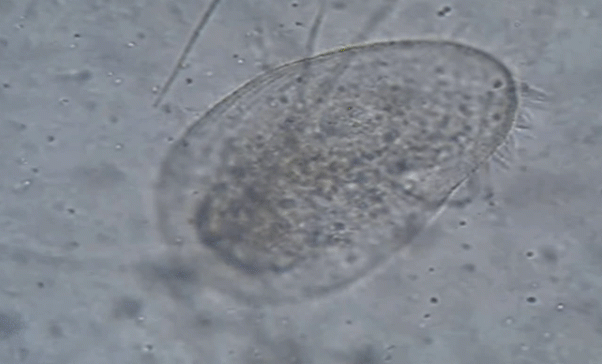Soil is a living system
Soil micro-biologists have concluded that roughly 95% of the functions we expect the soil to perform are biologically driven.
Ignoring this biological or natural system mother nature has put in place is why we are now so dependent on fertilizer, fungicide, insecticide & are now experiencing problems such as salinity, compaction, poor water infiltration, disease, insect pressure, etc.
The Funk of Healthy Soil
Want thriving, nutrient-rich soil? Here’s the golden rule: If it doesn’t stink, it’s time to rethink.
No funk, no growth. No smell, no germination. It’s that simple. Much like James Brown said, you need a bit of funk to thrive.
From the sludge at the bottom of your compost bin to the droppings from furry friends, all of it enriches the soil. Ever driven through the countryside and been hit by a whiff of animal manure? That "poop smoothie" isn’t spread around for fun—it’s how farmers keep their soil fertile year after year. It’s a simple fact: nutrient-dense organic matter has a certain... aroma. Why does it smell like gym socks? That’s a question for the science squad.
“But Uncle Regi, does soil enrichment always have to reek?” The good news is, not always. There are plenty of odor-free or pleasantly scented methods out there. Our website is packed with well-researched articles to help you out. Tell your neighbors, too—sharing is caring. People use all kinds of things to enrich their soil, from coffee grounds to molasses, and yes, even their own urine (don’t judge). Fun fact: yours truly, Uncle Regi, has tested that method. Surprisingly, not all biomatter is smelly—bone meal has a neutral scent, worm castings smell like a hamster cage, and synthetic fertilizers like nitrogen supplements are odorless (though they look potent enough to revive a UFC fighter). Balancing your soil is both an art and a science, so tread carefully. Using too much of a good thing can lead to problems like excessive leaf growth, leggy stems, or browning leaves. A word of advice: don’t overdo it with the DIY fertilizer ratios. Trust me on this one.
The Hidden World of the Soil Food Web
You don’t have to dig deep (pun intended) to find out how much I love mushrooms and mycelium. Whether they’re on my dinner plate or, ahem, enjoyed recreationally, I’m a fan. Sitting back with a portobello burger or a bit of “funny fungus” while enjoying the outdoors is my idea of happiness. Even if you’re not into mushrooms, you’ve got to respect them. Seeing mushrooms pop up in your garden, on your property, or in a grow bag is nature’s way of telling you your soil is thriving. What should you do next? Absolutely nothing. Leave it alone. As my better half often says, “Don’t mess with a good thing.” She’s also trying to convince me to buy a farm, so stay tuned for future tales of me navigating farm debt and questionable garden layouts. If you catch me testing soil by, uh, “regenerating” it in person, just know it’s all in the name of science.
One tip though—don’t go eating wild mushrooms unless you know what you’re doing. Around 90% of them are harmless, but that other 10%? They’ll put you in the hospital faster than a bad DIY project. Get a guidebook, consult a local expert, or just play it safe. Your stomach will thank you.
Understanding Your Soil
Sometimes, it’s not about what you add to your soil but what you need to do with it. Compacted soil is a no-go for healthy growth—it won’t absorb nutrients or water properly. So grab a garden fork and loosen things up! If your garden looks like a dried-out wasteland, it’s going to yield like one. Struggling with moisture retention? Plant some shade trees or find other ways to balance the environment. And yes, sometimes I just talk to my garden—though that’s usually when I’ve indulged in some funny fungus. The neighbors have politely asked me to stick to “chatting” with my own dirt.
Regenerative, living soil is about giving back what you take. If you keep depleting the land without replenishing it, it’ll eventually stop being productive. Tossing organic matter around—yes, even manure—helps keep things fertile. Healthy soil works in a cycle: death brings life, waste brings growth, and just like in any relationship, if you only take and never give, you’ll burn it out. No, I’m not saying you need to... pee on your partner (unless that’s your thing—in which case, please use the garden). Two birds, one stone... or fetish. Whether you follow a structured yearly soil care regimen or simply toss food scraps into the dirt, every little bit helps. Your soil will thank you, either with a bountiful harvest or just enough to keep you encouraged. Either way, your garden will appreciate the effort.







